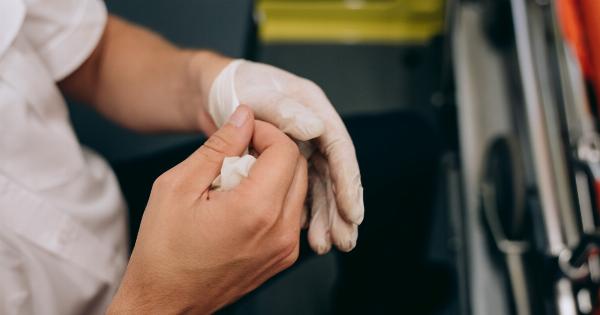Fertility refers to a person’s ability to conceive a child. For couples who are actively trying to have a baby, understanding the factors that can maximize fertility is crucial.
While each couple’s journey may be different, there are certain tips and practices that can increase the chances of conception. In this article, we will explore some of these strategies and provide guidance for couples who are trying to conceive.
1. Maintain a Healthy Lifestyle
One of the first steps in maximizing fertility is to maintain a healthy lifestyle. This includes following a balanced diet, engaging in regular physical activity, and getting enough sleep.
A diet rich in fruits, vegetables, whole grains, and lean proteins can provide the essential nutrients needed for reproductive health.
2. Manage Stress Levels
High levels of stress can negatively impact fertility. Stress affects hormonal balance and can disrupt the menstrual cycle in women and reduce sperm quality in men.
Couples trying to conceive should find ways to manage stress, such as practicing relaxation techniques, exercising, or seeking professional help if necessary.
3. Timing Intercourse
Understanding the menstrual cycle is crucial for timing intercourse. Ovulation occurs around the middle of the menstrual cycle, and having intercourse during this time increases the chances of conception.
Tracking basal body temperature, cervical mucus changes, or using ovulation predictor kits can help identify fertile days.
4. Maintain a Healthy Weight
Both underweight and overweight individuals may face difficulties in conceiving. Maintaining a healthy weight can regulate hormone levels and improve fertility.
It is essential to consult with a healthcare provider to determine the ideal weight for fertility and take necessary steps to achieve it.
5. Avoid Smoking and Alcohol
Smoking and excessive alcohol consumption can significantly reduce fertility in both men and women. These substances have a detrimental effect on sperm count, motility, and hormone levels.
Quitting smoking and limiting alcohol intake can significantly improve the chances of conception.
6. Limit Caffeine Intake
While moderate caffeine consumption is generally considered safe, high levels of caffeine intake can interfere with conception. It is recommended to limit caffeine intake to 200 milligrams per day, which is equivalent to roughly one cup of coffee.
7. Visit a Healthcare Provider
If fertility issues persist after several months of trying to conceive, it may be beneficial to seek guidance from a healthcare provider.
They can conduct tests and evaluations to identify any underlying conditions or factors affecting fertility and provide appropriate treatment options.
8. Consider Preconception Check-ups
Preconception check-ups can help identify any potential health issues that may affect fertility.
These appointments can help address concerns, receive necessary vaccinations, and ensure that both partners are in optimal health before embarking on the conception journey.
9. Maintain Emotional Well-being
Fertility struggles can take an emotional toll on couples. It is important to maintain emotional well-being throughout the process.
Engaging in activities that bring joy, practicing self-care, and seeking support from loved ones or support groups can help manage the emotional challenges and reduce stress.
10. Be Patient and Stay Positive
Conceiving may take time, and it is essential to remain patient and positive throughout the journey. Stress and anxiety can hinder the chances of conception, so focusing on maintaining a positive mindset can be beneficial.
Remember that each couple’s fertility journey is unique, and with time and perseverance, the desired outcome can be achieved.




























